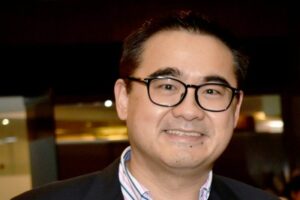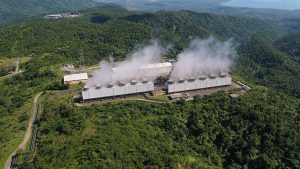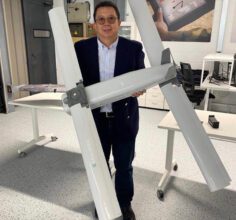Economic managers at risk of being bypassed by Palace advisor

By Kyle Aristophere T. Atienza, Reporter
ECONOMISTS have expressed concern over the creation of a new special-advisor office whose head will hold Cabinet rank, citing the possible sidelining of other economic managers.
The new office is a “redundancy” and “smothers the leading roles” of the Department of Finance (DoF), National Economic and Development Authority (NEDA), and the Trade department, according to Filomeno Sta. Ana, coordinator at Action for Economic Reforms.
“The executive order (EO) is a public humiliation of our economic managers and our institutions,” he said via Messenger chat.
Frederick D. Go, the former president and chief executive officer of Robinsons Land Corp. (RLC), has been named to head the Office of the Special Assistant to the President for Investment and Economic Affairs (OSAPIEA), which was created via an Executive Order issued Dec. 15.
RLC on Wednesday formally announced the acceptance of Mr. Go’s resignation from his executive and board posts.
In his EO, Mr. Marcos cited the need to establish “a robust monitoring system to ensure a holistic and cohesive approach to addressing the diverse economic challenges currently confronting the nation.”
Mr. Go is tasked with advising the President on economic matters and concerns, including, among others, the increasing prices of key commodities.
OSAPIEA will also be responsible for following up on investment pledges obtained during overseas missions.
Prior to becoming Special Assistant to the President, Mr. Go held the title of Presidential Adviser on Investment and Economic Affairs.
The Secretary of Finance formerly oversaw the Economic Development Group, but following EO No. 49, Finance Secretary Benjamin E. Diokno has been relegated to vice chair, serving alongside NEDA Secretary Arsenio M. Balisacan.
“The creation of this office is unnecessary; it is a clear political accommodation at the behest of the President,” Gary Ador Dionisio, dean of the De La Salle – College of Saint Benilde School of Diplomacy and Governance said.
“The appointment also somehow weakens the trust and confidence of the President in his alter egos in the various departments,” he said via Messenger chat.
As chairman of the EDG, Mr. Go will have the authority to coordinate the activities of the NEDA, the DoF, the DTI, and the Department of Budget and Management, as well as of economic agencies attached to these departments such as the Board of Investments, Philippine Economic Zone Authority, and Securities and Exchange Commission.
“The said agencies are required to regularly report and coordinate with the SAPIEA on priority initiatives and programs, activities, and projects,” the Presidential Communications Office said on Monday.
In his new position, Mr. Go will also sit as a member of the NEDA Board, Investment Coordination Committee, Social Development Committee, Committee on Infrastructure, and Development Budget Coordination Committee.
Randy P. Tuaño, dean of the Ateneo School of Government, said such an appointment is not unprecedented, with several former chief executives appointing coordinating secretaries to supervise specific Cabinet departments.
During the administration of the late Corazon C. Aquino, coordinating secretaries oversaw economic policy, political affairs and social policy, he added.
While noting that the new office might duplicate some of the functions of NEDA, which is itself a coordinating agency, Mr. Tuaño said some countries have made it a practice to appoint coordinating secretaries.
He cited the Indonesian cabinet system, which features ministries like the coordinating ministry for economic affairs.
“But if the role mainly is to represent the President, given that the function is a public/governmental function, then clearly that person should not have overt private interests,” he said.
Leonardo A. Lanzona, who teaches economics at the Ateneo de Manila, expressed concern that the new office was created via EO and not legislation.
Legislation would have been the better route “given that (the new office) has broad coverage encompassing several departments and agencies,” he said via Messenger chat.
Going through Congress would have ensured that its functions are “defined and authorized by law,” he said. “Legislative creation often involves a more comprehensive and deliberative process, with inputs from lawmakers and public scrutiny.”
Mr. Lanzona said unlike the NEDA, which deals with both the productivity and equity goals of society, the new investment office is “all about money.”
“Hence, it makes it rational to appoint a CEO from the private sector to head it, but the outcomes are not necessarily socially optimal.”
Terry L. Ridon, a public investment analyst and convenor of InfraWatch PH, believes the new post will not overlap with the functions of major economic agencies.
“The agencies will still implement their respective programs and activities but will now require the strategic direction and guidance of Secretary Go on the most important economic and investment concerns,” he said via Messenger chat.
“Essentially, Mr. Go now heads President Marcos’ economic team,” he added.
Mr. Ridon cited parallels with the Private Sector Advisory Council, whose members do not work full-time and retain their high-level executive positions in the private sector.
“Given Secretary Go’s reputation for integrity, we are confident that he will immediately recuse himself on matters with clear conflicts of interest,” Mr. Ridon said.
Last week, Mr. Go said the Philippines is working to secure a “respectable” share of firms moving out of China, particularly in the semiconductor industry, noting that the government’s “catch-up plan” seeks to realize the Philippines’ “untapped” export potential of $49 billion.
Mr. Go said he will pay special attention to the electronics industry, which accounts for 60% of exports.
“There is a pivot now away from China by a lot of the Western as well as the Asian countries and a lot of the attention is now going to our neighbors such as Thailand, Indonesia, and Vietnam,” he was quoted as saying in a statement issued after a general meeting of the Philippine Exporters Confederation, Inc.
Mr. Go said the Philippines is also seeking to benefit from the expansion of nickel processing market amid a shift to electronic vehicles.
The Philippines needs to capture more of the nickel value chain by processing the ore domestically rather than exporting ore.




